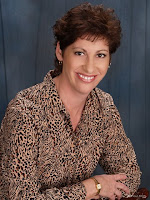
Michael Phelps was recently in the news again breaking another swimming world record, in the butterfly.
His story has a powerful message that all parents who have children with ADHD need to take wind of and integrate into their families. It is the power of love and belief in others. It is the power of one person, his Mom, to see only the good in her son. When everyone else saw problems, it was the power of one mother to see possibilities. This was the result of a parent's belief, love and confidence her son could do something well, even when other people in the academic world were telling him what he didn't do well.
It was the power of one Mom persevering relentlessly and always saying to her child: "You can and you will if you want to. Don't let what you can't do get in the way of what you already, brilliantly can. Just because you struggled in school does not make you a loser. Just because the teachers didn't understand how you are wired does not make you stupid. I know how you are wired and your brain has trillions of different ways of processing the world around you. If you can find something you love then I will also love it. I will always let you know about your love for swimming as long as it ignites both your head and your heart."
Michael Phelps has a mom who has always believed in his ability to do something well; not everything, but at least one thing. She never gave up letting him know that he won't get satisfaction from trying to making his academic weaknesses stronger. Michael's mom knew you make the most out of life by doing what you love, especially when you already do it well. Think of all the swimmers, musicians, artists, writers, web designers, who may have ADHD and do something well but are directed to spend their focus, time & energy on tasks that play to their weaknesses. Their brains are not getting the nourishment they need. When you have ADHD, you don't gain any kind of momentum, or positive self-esteem by focusing, on what you don't do well. You get ahead in life by focusing on what you already do well and fin ding ways to do it better.
Through the power of his Mom's love and Michael's unrelenting, hyper focus and determination, he transformed his natural swimming talents, into super-human strengths. We were all given the gift of witnessing the greatest swimmer in Olympic history. Thanks Mom!!!!!
(Written by David Giwerc, MCC, ADDCA Founder)






